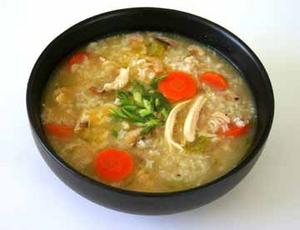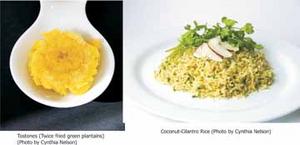By Cynthia Nelson
Hi Everyone, How did you learn to cook? Where did you learn to cook? When did you learn to cook? I get asked these questions often. And often I am stumped because my answer would never be as straightforward as naming a person, place or time. Truth be told, I am constantly learning. This week, however, I thought I’d attempt to answer those questions as concisely as I can.
I learnt to cook from a very early age (we’re talking single digits here) because I was interested in learning how to cook. I was curious to find out how the raw ingredients came together to make a dish. What magic transformed them? How does one know when something is done and that it’s cooked? How do you know what spices to go well with certain meats and vegetables? Why were tomatoes not put in all the dishes? Why the spice ingredients for the curry had to be ground and made into a paste instead of being added whole? Why the ingredients for a cake could not be put into a bowl and be mixed all at once? Why not let the heat be on high all the time? Surely the food would cook quicker? Why? Why? Why? Why? Why?

I mentioned in a previous column my first cooking venture – curried pork and rice. I was nine years old then. I’ve also mentioned in a previous column how I’d take over the cooking on the weekends, not so much to give mom a break but more to practice and perfect my cooking skills by imitating hers, Auntie Betty’s and Shantie’s cooking styles and techniques. I’d take pride in steaming the rice perfectly for fried rice, or making the cheese sauce for the macaroni pie, creating my own herb marinade for the baked chicken; knowing how long to chunkay the masala for curry etc. I did not experiment too much until I was living on my own, which brings me to the other parts of my cooking education.
I learnt by watching television cooking shows that came on the Dis-covery Channel and PBS. Food Network came much, much later and I have a love/hate relationship with some of their shows. I learnt by reading lots of cookbooks, lots of old cookbooks. My mom had one cookbook. It had a hard cover and it was thick. I can’t remember clearly but I think it was called, The Cookbook. It was very old and in black and white, except for a few pages of colour photographs at the end of the main-dish section and a few others at the end of the cakes and desserts section. I remember spending hours getting lost in the pages and marvelling at the creations.
I’ve learnt to cook by conversing with other cooks; asking questions, seeking explanations and by sharing my own thoughts and ideas. Equally important is that I have learnt from myself, I’ve learnt to trust my own instincts. And I’ve also learnt from my own trials and errors. Each day, I learn something more about food and about cooking. Even things that I have been making for years, I learn something more about when I make it. For example, each time I make curry, I can smell which spices are more dominant in the garam masala as I taste the curry; each time I cook with herbs I marvel at the role the flavours play depending on which vegetable or meat it is cooked with; Adding mustard seeds to geera and garlic when chunkaying dhal is a welcome and pleasant surprise to the taste buds.
Having an open mind when it comes to eating and appreciating other people’s food has helped develop my skills as a cook too. Whenever I travel to any of the other Caribbean countries I always opt to eat their food rather than the dishes I am accustomed to. When I travel further I like to enjoy the cuisines of other countries such as Thai, Vietnamese, Indian, Italian, Spanish, and Greek etc.

I’ve learnt to always have a kettle of boiling water when I am cooking so that when I am ready to add the liquid to whatever dish requires it, I won’t have to add tap water that would cool the food and then take a longer time to cook because it now has to come back up to a boil.
I’ve learnt that scoring the skin of fish before frying or pan-searing it would prevent it from curling up.
I’ve learnt not to rinse the pasta after boiling it, to do so would wash away the starch that helps the sauce adhere to the pasta.
I’ve learnt how to quickly pan-fry shrimp in a hot pan and then add it to sautéed vegetables just as the vegetables are finished cooking. That way, they remain plump and juicy.
I could go on and on, but a columnist must respect her word limit. Still I hope I’ve answered some of the questions about how I learnt to cook. I guess you could say that the better question is how I am learning to cook. The fact is that it is an ongoing process that is something like a recipe – I take a little knowledge gained from the phenomenal women in my life, mix it with what I learn from reading, add generous helpings of inspiration, let it simmer and serve with a smile.
Cynthia
tasteslikehome@gmail.com
www.tasteslikehome.org





